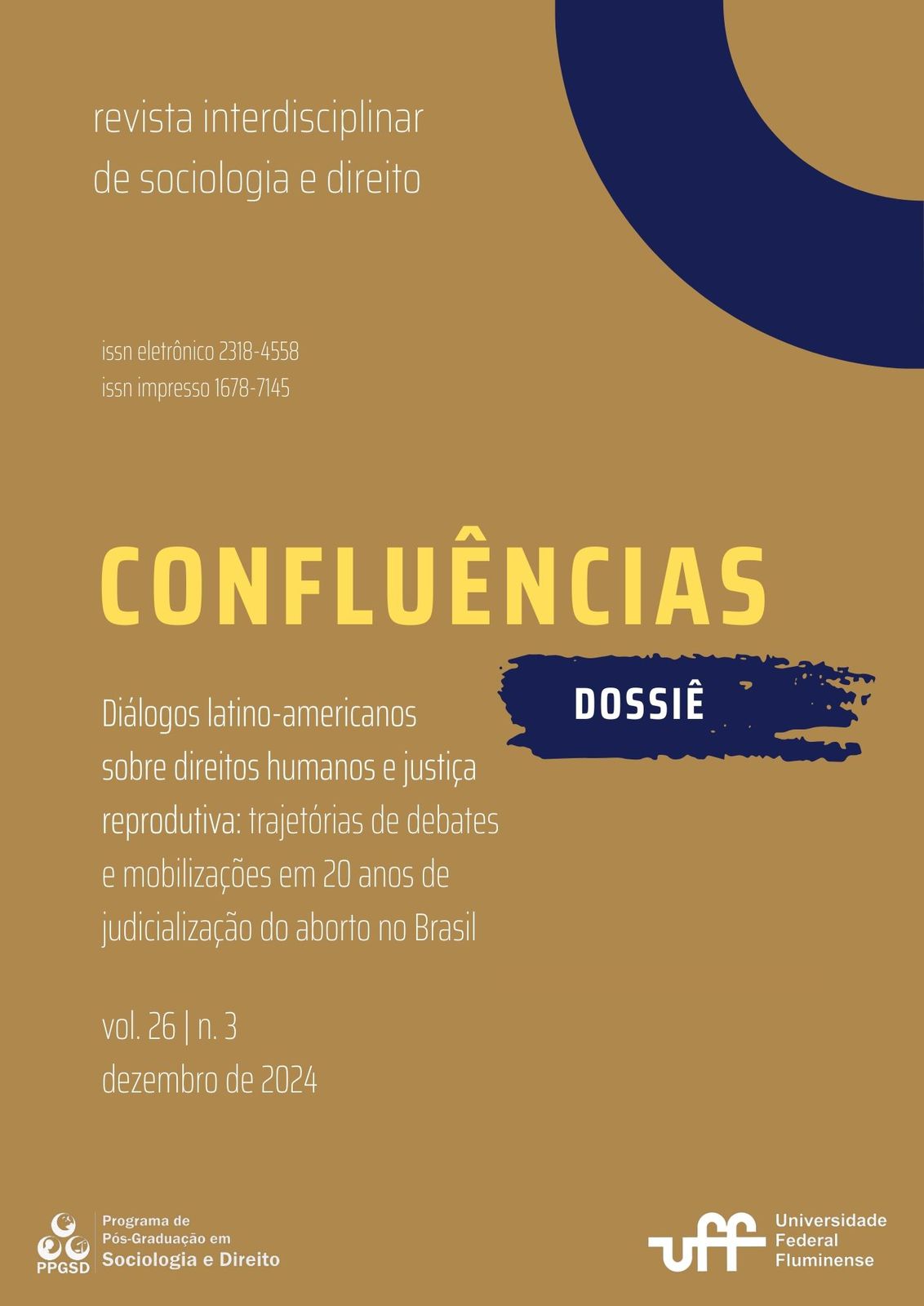----- PRACTICES AND STATEMENTS OF HEALTH TEAMS IN THE CRIMINALIZATION OF WOMEN FOR ABORTION
-------
DOI:
https://doi.org/10.22409/conflu.v26i3.64905Abstract
In contrast to the recent proactive stance of the Brazilian Supreme Court (STF), aligned with the perspective of Human Rights regarding reproductive justice, state courts have denied access to legal abortion even in pregnancies resulting from rape and which pose a risk to the lives of girls, women and people carrying the baby. In cases of self-induced abortion or abortion with the mother's consent, an environment in the justice system is even more resistant to the well-being, autonomy and respect for the mother. In a study carried out on the judgments of the Courts of Justice of Minas Gerais (TJMG), Rio Grande do Sul (TJRS) and São Paulo (TJSP) derived from articles 124 and 126 of the Penal Code, between 2012 and 2023, it is noteworthy that records in the proceedings of different forms of institutional violence by health teams in the care of those who demand medical services due to unsafe procedures. Such actions and speeches by these teams are not only ignored by the Judiciary due to their violent profiles but have also served as a basis for fostering discriminatory judgment, reproducing stigmas and patriarchal stereotypes about the defendants in their decisions. When analyzing the judgments, therefore, it is concluded that a continuous and similar medico-legal standard has been established between the health teams and the Judiciary in the steps involving the complaint, investigation, gathering of evidence and conviction over the last 12 years, mobilizing conservative social representations from a gender perspective and cutting off the rights of women, girls and people who are pregnant in the country.
Downloads
Downloads
Published
How to Cite
Issue
Section
License
Copyright (c) 2025 Tânia Mara Campos de Almeida, Ela Wiecko Volkmer de Castilho, Clara Frota Wardi

This work is licensed under a Creative Commons Attribution-NonCommercial 4.0 International License.







